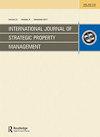大城市的住房类型、人口属性与住房发展路径--中国郑州案例研究
IF 1.7
4区 管理学
Q3 MANAGEMENT
International Journal of Strategic Property Management
Pub Date : 2023-12-07
DOI:10.3846/ijspm.2023.20425
引用次数: 0
摘要
大城市的住房成本通常归因于房地产市场的过度投资或金融化。住房问题的主要原因是住房供需失衡。在城市住房市场背景下,住房供给与人口类型的动态匹配对于促进均衡、最大化市场长效机制的有效性、保持市场的协调性和稳定性具有至关重要的作用。为了说明这一点,本文从人口属性与住房类型动态匹配的角度分析了人口不同属性对住房需求的影响。以河南省郑州市为例,考虑过去人口属性与住房类型的关系,构建了人口与住房类型的理论模型,并对未来各类住房的供应规模进行了预测。最终,我们的研究结果为抑制大城市过度金融化和房地产泡沫提供了理论依据。进而,从住房供需匹配的角度出发,提出了城市住房回归生活本质的实践方法。本文章由计算机程序翻译,如有差异,请以英文原文为准。
HOUSING TYPES, POPULATION ATTRIBUTES AND THE DEVELOPMENT PATH OF HOUSING IN LARGE CITIES – A CASE STUDY OF ZHENGZHOU, CHINA
Large-city housing costs are commonly attributed to excessive investment or financialization of the property market. The primary cause of housing issues is the imbalance between housing supply and demand. In the context of the urban housing market, the dynamic matching of housing supply and population type plays a crucial role in promoting equilibrium, maximizing the effectiveness of the market’s long-term mechanism, and preserving the coordination and stability of the market. To illustrate this point, the paper analyzes the impact of different attributes of population on housing demand from the perspective of dynamic matching between population attributes and housing types. Taking Zhengzhou City in Henan Province as an example, we consider the relationship between population attributes and housing types in the past, construct a theoretical model of population and housing type and anticipate the future supply scale of various housing kinds. Ultimately, our findings provide a theoretical justification for curbing excessive financialization and housing bubbles in large cities. Furthermore, we propose a practical method for urban housing to return to the essence of life from the perspective of matching housing supply and demand.
求助全文
通过发布文献求助,成功后即可免费获取论文全文。
去求助
来源期刊
CiteScore
4.00
自引率
18.50%
发文量
23
审稿时长
15 weeks
期刊介绍:
International Journal of Strategic Property Management is a peer-reviewed, interdisciplinary journal which publishes original research papers. The journal provides a forum for discussion and debate relating to all areas of strategic property management. Topics include, but are not limited to, the following: asset management, facilities management, property policy, budgeting and financial controls, enhancing residential property value, marketing and leasing, risk management, real estate valuation and investment, innovations in residential management, housing finance, sustainability and housing development, applications, etc.

 求助内容:
求助内容: 应助结果提醒方式:
应助结果提醒方式:


